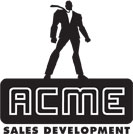You know have a great company. And you love your stuff. It’s the best stuff ever invented either in the way of it’s slick design, all of it’s convenience or in the kind the service delivered – maybe all three of those and more! It’s okay to love your stuff. Just don’t trick yourself into thinking customers buy because of your stuff. It’s not your stuff.
The reason your stuff is purchased is because your prospect, ether on his or her own or through the work of your effective salesperson, has discovered a very strong and compelling reason to make the purchase. The prospect believes your stuff will solve their problem, make life or business better, reduce a cost, increase revenue or mitigate some kind of risk. The implication of the prospect not having your stuff, or of having similar stuff which isn’t working as well as it should are generally financial in impact (but not always) and for much bigger amounts than the cost of your stuff.
If you have the kind of great stuff which solves big problems, you’re going to require very effective salespeople. You may also find your salespeople also aren’t as in love with your stuff as you are. That’s not necessarily a bad thing. What effective salespeople do love is the process of finding someone with the kind of problem they know they can solve, qualifying that the prospect has a strong business or personal reason to use your stuff to solve their problem and then coming to an agreement with the prospect as to the proper fee to do so.
If you have the feeling there’s not enough love of your stuff out there, consider it likely your salespeople are the problem. Take the step to fully understand your salespeople and sales managers. You might get good news and discover your sales force isn’t the problem and you can move on to other issues. Or you might find out your people are ineffective, lack the skill and the management support to execute your sales strategy. All of which add up to your stuff not being loved as much as it should be.
Tags: assessments, finding the right salespeople, sales, sales assessments, sales development, sales management, sales recruiting, sales training
